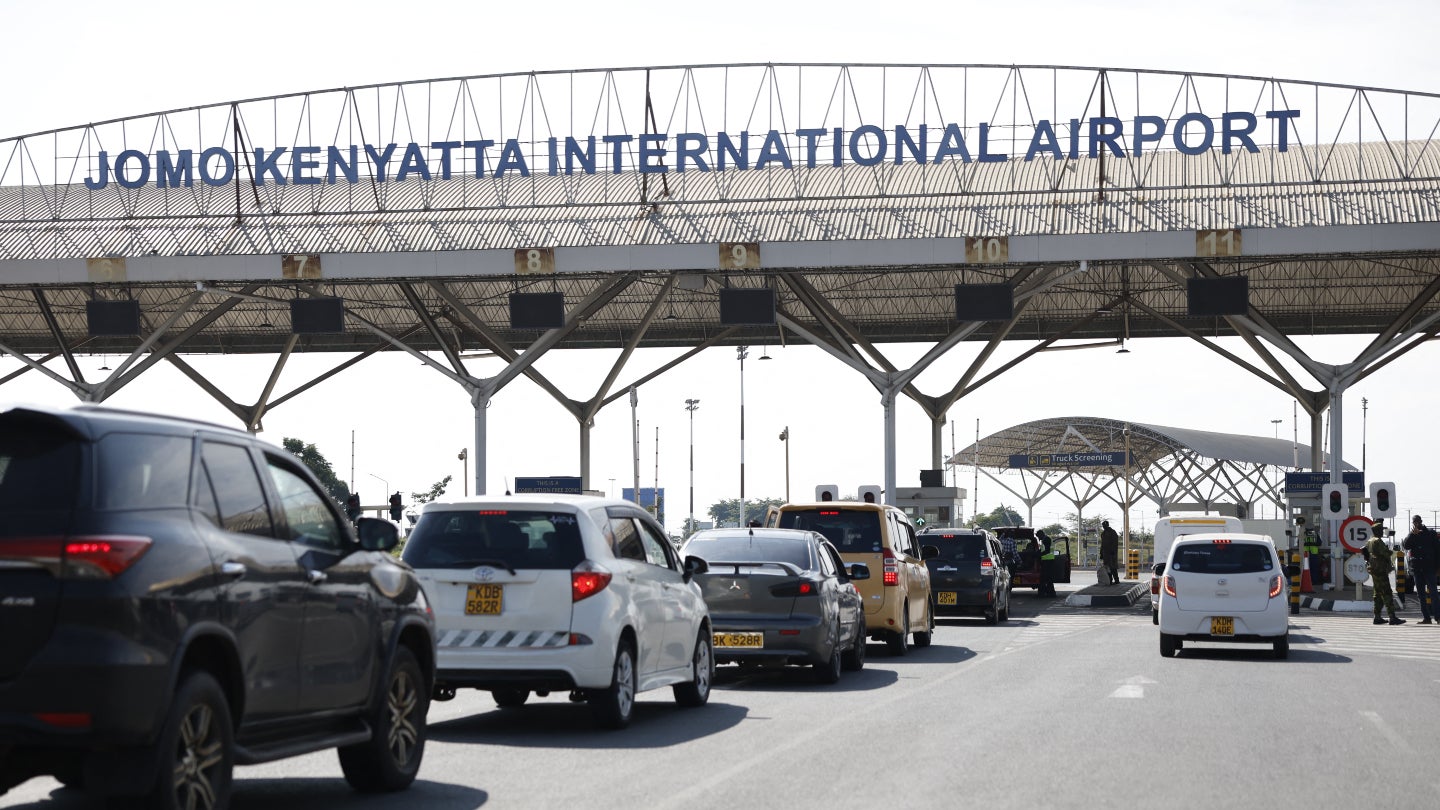Adani Group Seeks Opportunities For Investment In Tanzania And Kenya Worth $900 Million And $736 Million, Respectively; The Unmatched Opportunity And Growth In East Africa
East Africa represents much promise and many investment opportunities for the Adani Group, with Tanzania and Kenya both serving as favourable destinations for investments. Both countries stand to gain a great deal from Adani Group's growing footprint as it now looks forward to hastening infrastructural development and economic diversification.

The Adani Group is ramping up its African footprint by investing both in Tanzania and neighboring Kenya.
The Tanzanian government gave the concession in May to run the main container terminal at the port of Dar es Salaam for 30 years earlier this year and is now negotiating with the Adani Group for a $900 million public-private partnership project aimed at building high-voltage power lines.
Tanzania is also in discussions with UK firm Gridworks Development Partners LLP for a $300 million power-lines project under the public-private partnership.
In Kenya, Adani has been in discussion with the country’s electricity transmission firm over a concession to build high-voltage power lines worth $736 million.
However, the group’s plan to manage the country’s main airport in the capital, Nairobi, has led to protests, Senate hearings and lawsuits.

Growth Prospects And Expanding Presence of Adani Group in Tanzania
Tanzania has emerged as a new economic center in recent years in East Africa and the country is fast emerging as the new destination for international investors. Its strategic location, growing economy, and natural resources yield massive growth potential.
Quite predictably hence, one of the India’s biggest corporate houses, Adani Group sees this opportunity and is making huge inroads into Tanzania’s infra developments particularly focused on power transmission and port operations.
Adani Group interest in Tanzania comes at a time when the country is moving toward rapid infrastructural developments driven by a strong will of the government to attract foreign investments.
In May, Adani secured the 30-year concession for operating the main container terminal at the port of Dar es Salaam, its first big-ticket project in the country; the group’s investments are, however not confined to port operations alone.
As reported earlier, Adani Group is negotiating with Tanzanian authorities over a $900 million public-private partnership in the construction of high-voltage power lines. A move widely seen as an integral part of Tanzania’s quest to build up its energy structures which is crucial to the development of its industries and urban centers.
Energy accessibility remains a challenge in many parts of Tanzania, and this partnership represents an opportunity to bridge that gap, allowing for sustainable growth in industries ranging from mining to manufacturing.
Tanzania’s Growth Potential And Why It Matters for Adani
For one, geopolitical significance cannot be overstated because Tanzania is along the East African coastline, a gateway to six landlocked countries in Africa with huge potential for trade.
The port of Dar es Salaam is a major hub for cargo and its control will facilitate Adani to access a larger regional market.
Secondly, Tanzania possesses huge natural resources, which include natural gas and rare earth elements and gold.
Thus, the entry of Adani into the power sector will leave open avenues for subsequent partnerships in energy research or mining, areas in which it already boasts expertise.
Infrastructure in Tanzania remains generally underdeveloped, mainly in energy and transport sectors; yet, the government’s policy on public-private partnerships presents companies with a favourable climate for entering the market.
Adani Group can contribute to closing these gaps by investing in infrastructure, enabling the overall economy to thrive while securing long-term business returns.
Despite the rest of the world encountering challenges to its economy, Tanzania’s economy has come out strong; according to the World Bank and steady growth is projected for the coming years.
Its economic diversification strategies—centered around agriculture, manufacturing, and mining—align well with the interests of investors like Adani, who can leverage this growth to expand their footprint in the region.

Adani’s Strategic Vision for East Africa
From Adani’s perspective, Tanzania is more than just a stand-alone market; it is a key node in a broader East African expansion strategy.
The group has already initiated conversations with Kenya for a $736 million concession to build high-voltage power lines, signalling a regional approach to infrastructure development.
This means by making the right move in both Tanzania and Kenya, Adani Group can create synergies between its East African operations to save costs and become more logistically efficient.
Adani’s expertise in managing large-scale infrastructure projects and energy solutions gives it a great competitive advantage in such markets like Tanzania, where there is a strong need for the services, though there is limited local expertise.
The group’s entry into the Tanzanian power sector opens up avenues for potential collaborations on renewable energy-which is gaining popularity across Africa as part of the global shift toward sustainable development.
The Wider Economic Impact in Tanzania
These investments by international companies, such as the Adani Group, mark the beginning of unlocking the country’s full potential.
This has numerous merits. At the forefront, and major, are infrastructure projects, which provide promises of jobs, vocational and technical skills development, and training. Hence, it would empower the local community and aid the sustainability of growth through a skilled workforce.
Secondly, the construction of high-voltage power lines will dramatically improve energy access in the country.
Currently, large sections of the population have limited access to reliable electricity, which hampers economic activity. Reliable power is essential for industries such as agriculture, mining, and manufacturing, which are vital to Tanzania’s growth trajectory.
Successful projects like the Dar es Salaam port terminal and power line infrastructure would make Tanzania even more attractive to other global investors.
Where the Adani Group is making very strong forays, other multinational companies are expected to follow suit, which may increase FDI in key sectors through a ripple effect.
Challenges Ahead
Even though the prospect looks bright, there are a few challenges that need to be taken into consideration.
Political stability, being generally good in Tanzania, can always pose risks, especially in regions undergoing rapid change.
At the same time as has been seen many times before local groups will be sensitive toward large foreign-led projects if they feel left out of decision-making or if concerns about environmental impact come up.
In this context, how Adani has executed stakeholder engagement will be the key to overcoming those risks.
Investment in Kenya
Other than Tanzania, Kenya is another fast-emerging economy in the East African region that is slowly gaining prominence as a prime destination for foreign investment.
Kenya like Tanzania also looks to strengthen its infrastructure development, expansion of energy, and regional integration, hence positioning the country as it looks forward to become a hub of growth in East Africa.
For the Adani Group, already having taken strategic moves in Tanzania, Kenya offers a complementary opportunity in that regard to expand its influence across the region.
Economic Outlook and Growth Prospects of Kenya
Kenya remains one of the most diversified and robust economies within East Africa, with a GDP in excess of almost $114 billion (2023).
Its strategic location as a gateway to landlocked countries like Uganda, Rwanda, and South Sudan enhances its regional importance.
The financial sector is well developed; the middle class is expanding, and its potential in infrastructure development, agriculture, energy, and technology is impressive.
Kenya’s location along the Indian Ocean and its position as a transport corridor for the East African region make it an ideal investment destination.
The Port of Mombasa is one of the busiest in Africa, serving as a critical transit point for goods heading to and from landlocked nations.
The country is also home to a well-established railway network, highways, and airports, including the Jomo Kenyatta International Airport, a major aviation hub for the continent.
Kenya has advanced much in the energy sector, particularly in developing renewable energy.
Kenya is one of the world’s biggest producers of geothermal power and has been increasingly adding wind and solar capacity. However, despite this progress, Kenya still faces energy transmission and distribution challenges, which is where foreign investment in infrastructure can play a crucial role.
Kenya’s government has been proactive in promoting investment through public-private partnerships (PPPs). These partnerships have paved the way for infrastructural development, including roads, power lines, and industrial parks, making Kenya a favorable environment for large-scale foreign investments.

Adani Group’s Strategic Investments in Kenya
Adani Group seeks to invest heavily in Kenya’s infrastructure and energy sectors. From this perspective, it aims at a significant share in Kenya’s long-term growth while placing itself in an ultra-strategic position in an enormous market.
Energy Transmission Projects
Adani Group is in negotiations with Kenya’s electricity transmission company to construct high-voltage power lines worth $736 million.
These power lines would be of huge importance to Kenya in terms of energy infrastructure since they would improve the modernization of the grid, fill gaps in access, and the effort of the Kenyan government in trying to increase access to energy in rural regions, promote industrialization, and increase power connectivity in the region.
Aviation Sector Controversy
While the Adani Group’s interest in Kenya’s infrastructure is evident, its bid to operate Jomo Kenyatta International Airport in Nairobi has sparked public protests, Senate hearings, and legal challenges.
Despite this, the group’s intention to invest in such a critical piece of infrastructure shows its ambition to deepen its involvement in Kenya’s transport and logistics sectors. If the issue is resolved favourably, the airport concession could offer Adani a foothold in East Africa’s aviation industry.
Prospects for Growth in Kenya
For the Adani Group, there are quite some compelling reasons why it stands ready to be an investment destination —
The country presents substantive needs in infrastructure, more so in energy and transportation. As the country continues growing, the country’s need for reliable power and effective logistics increases too.
Adani Group’s investments into energy transmission and infrastructure projects directly answer these needs, thus establishing the company as a significant player in the development of Kenya.
There is great scope for cross-border trade and investment between Kenya and the East African Community (EAC) and also with the African Continental Free Trade Area (AfCFTA).
Adani’s investments in Kenya, combined with its presence in Tanzania, are likely to bring synergies throughout the East African region. The integrated market allows the Adani Group to expand its scale of operations, develop regional trade, and benefit from growth opportunities in neighboring countries.
Leveraging Renewable Energy Expertise
Kenya’s focus on renewable energy, particularly geothermal and wind power, aligns with Adani’s expertise in green energy. By contributing to energy transmission infrastructure, the Adani Group can support the country’s shift towards sustainable energy solutions, helping to meet both local and regional energy demands.

Challenges and Considerations
Investing in Kenya presents some challenges that the Adani Group, like other foreign investors, will need to manage —
Political and Social Sensitivities
As seen in the protests surrounding the airport concession, foreign investments in strategic sectors can be met with public resistance and political scrutiny. Balancing business interests with local sentiment is essential for long-term success.
Regulatory Environment
While Kenya’s government is open to foreign investment its regulatory framework can be complex hence, potential investors may face bureaucratic hurdles and need to ensure compliance with local laws and regulations.
Competition
Kenya’s growing economy has attracted a wide range of international players, particularly in the infrastructure and energy sectors for the Adani Group, this means competing with other global firms to secure key projects and partnerships.
The Last Bit, For the Adani Group, expanding its foothold in East African countries like Tanzania and Kenya presents tremendous opportunities for investments.
Both countries offer strategic locations, with a growing economy and demand for infrastructure development making it an attractive investment destination for global companies like the Adani Group.
The countries’ focus on energy expansion and regional trade integration aligns with Adani’s business strengths, particularly in power transmission and infrastructure.
However, managing political and social sensitivities, along with ensuring compliance with regulatory frameworks, will be crucial for the group’s success in the region.




